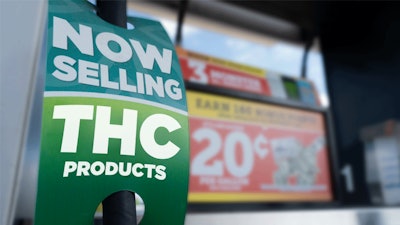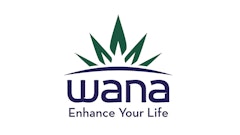
If 2022 was the year of delta-8 THC, then 2023 was the year of hemp-derived delta-9 THC. Despite the popularity and profitability of delta-8 THC products last year (Brightfield Group found that by the end of 2022, U.S. hemp processors had generated over $2 billion in revenue from delta-8 THC products, and accounted for approximately 50% of all cannabinoid hemp-derived products sold), we saw a shift in focus in 2023 to hemp-derived delta-9 THC products, which can now be purchased online and found anywhere including smoke shops, local bodegas, and even aisle endcaps in large chains such as Total Wine & More.
Despite its wide availability, the regulation of hemp-derived delta-9 THC products is essentially non-existent at the federal level, leaving just a patchwork of different approaches taken by states across the country. Here is a look at the regulatory landscape at both the federal and state levels, and our predictions for the year ahead.
Federal Legality of Hemp-Derived Delta-9 THC
The 2018 Farm Bill (“Farm Bill”) legalized “hemp,” which it defined as the cannabis sativa L. plant and its derivatives with no more than 0.3 percent delta-9 THC, the primary psychotropic compound in cannabis, on a dry weight basis. But the Farm Bill did not expressly address consumer products derived from hemp. So, it is not surprising to see the recent proliferation of products containing delta-9 THC derived from federally legal hemp.
In a case (AK Futures LLC v. Boyd Street Distro, LLC, No. 21-56133) that addressed the legality of delta-8 THC products only, the Court of Appeals for the Ninth Circuit held that intoxicating delta-8 THC products were not illegal substances under the Controlled Substance Act as long as they are derived from federally legal hemp as defined in the Farm Bill. This reasoning could be applied equally to delta-9 THC products, i.e., as long as the products are derived from hemp, as defined in the Farm Bill, intoxicating delta-9 THC products are legal under the Farm Bill too.
Federal regulators are split on how to deal with intoxicating delta-9 products derived from hemp. The FDA has taken the stance that any cannabinoids added to food or beverages are adulterants but has largely limited enforcement actions to only companies making medical claims about their products. Outside these limited actions, the FDA has made clear its position that it is up to Congress to decide whether any action should be taken regarding the regulation of cannabinoids. And DEA has taken the position that while naturally-present cannabinoids in hemp are legal, synthetically created cannabinoids violate the CSA, as Cannabis Business Times reported. DEA has indicated it will be proposing regulations for intoxicating hemp products, but until those regulations are made, we believe DEA action on this issue is unlikely, CBT also reported.
State Legality of Hemp-Derived Delta-9 THC
The Farm Bill allows states to regulate hemp in a more-restrictive manner than required under federal law, and over half of U.S. states have chosen to regulate or even prohibit hemp-derived delta-9 THC products. However, states that have forbidden the use of hemp-derived delta-9 THC in food or beverage products have instituted minimal enforcement efforts, and hemp-derived delta-9 THC products are still widely available. Further, online sellers of hemp-derived delta-9 THC products have continued to ship to states across the country regardless of the regulations in place. States have generally adopted one of five primary methods of regulating hemp-derived delta-9 THC products, with mixed results:
- Banning All Hemp-Derived Delta-9 THC Products
States have banned hemp-derived delta-9 THC products in two ways: Some states affirmatively ban hemp-derived products with greater than 0.3% total delta-9 THC, and other states do not allow for the sale of foods or beverages containing any adulterants as determined by the FDA, with no exception made for cannabinoids. The former group includes states such as Idaho and Hawaii. Most notably amongst the latter group are Massachusetts and Washington, both of which have state-regulated adult-use cannabis programs. While Massachusetts and Washington allow for cannabinoids to be included in regulated cannabis products, they have not excluded cannabinoids from their list of adulterants prohibited from inclusion in non-cannabis products. Despite these policy positions, hemp-derived delta-9 THC products are available in both states.
- Banning Synthesized Cannabinoids
A number of states have excluded synthesized cannabinoids from the definition of hemp, thereby outlawing hemp-derived delta-9 THC products that are made by synthesizing the naturally high levels of CBD present in hemp into delta-9 THC. For example, California removed synthesized cannabinoids from its definition of hemp in 2021, prior to the recent boom of hemp-derived products. This effectively outlawed delta-8 THC products, and made the production of delta-9 THC products from hemp significantly more costly. Arkansas and Connecticut also have forbidden the use of delta-9 THC synthesized from CBD in hemp products. Despite these regulations, products containing delta-9 THC synthesized from CBD continue to be sold in these states.
- Regulating Hemp Like Cannabis
Vermont was the first state to deem hemp products containing more than 1mg of delta-9 THC as cannabis. To sell hemp-derived delta-9 THC products in Vermont, a producer must obtain proper cannabis licenses, and can only sell such products in licensed dispensaries. Missouri is currently considering implementing a similar measure.
While this method of regulation adequately prevents minors from purchasing intoxicating products, it also removes one of the appeals of creating hemp-derived products: the avoidance of oftentimes onerous cannabis regulations and taxes. However, hemp producers in these states still maintain one key advantage over other cannabis operators, which is that hemp producers are not subject to IRS Section 280E and can deduct normal business expenses in their tax filings.
- Restricting Hemp Products to Only Very-Low Doses
Some states place very low caps on the permissible delta-9 THC content of hemp-derived products. For example, New York adopted emergency regulations banning hemp-derived products containing more than 1mg of total THC and those with 0.3% or more THC. When the New York Supreme Court issued a preliminary injunction against the emergency regulations, New York immediately passed final regulations to keep these restrictions in place. Connecticut has adopted the same THC limit per serving and a 5mg limit of THC per container (including in beverages), in addition to its ban on using synthesized THC, and defines hemp-products with higher THC levels as cannabis in the same manner as Vermont. Colorado has banned products containing 1.75mg or more of total THC, but regulators recently scheduled meetings for March 2024 to “seek input from industry stakeholders on a report revolving around product safety profiles and potential for intoxication that they must submit to state lawmakers.” Likewise, Florida may take a similar approach and effectively ban many currently available intoxicating hemp-derived products, via companion bills SB 1698 (passed unanimously in the Senate on Feb. 15) and HB 1613 (headed toward a full chamber vote), which impose a delta-9 THC cap of 2mg per serving and reclassify delta-8 and delta-10 as non-hemp substances.
These restrictions make hemp-derived products less of a threat to state-regulated cannabis operators, while still providing a space, albeit a small one, in which hemp-producers can operate.
- Establishing a Unique Hemp-Regulatory System
A select few states have chosen to embrace hemp-derived products. Louisiana, Minnesota, and Utah have each established regulatory systems in which hemp producers may manufacture and sell foods and beverages. Louisiana permits total THC content of up to 8mg, and Minnesota and Utah permit up to 5mg of total THC—an amount inline with lower-dose varieties of state-regulated cannabis. This strategy appears to be gaining popularity in states without adult-use cannabis; neither Louisiana nor Utah have adult-use cannabis program, and South Carolina, which doesn’t even have a comprehensive medical cannabis program—though the state Senate is currently debating the somewhat restrictive Compassionate Care Act—is considering a similar proposal. These products are subject to testing, packaging, and labeling requirements, as well as state registration. This regulatory system allows hemp-derived products to operate in the low-THC portion of the market but provides for more variety than in more restrictive states while providing some of the regulatory safeguards that apply to state-regulated cannabis.
California’s Proposal for a New Way
California Assembly Bill 2223, introduced February 7, 2024, proposes a new hybrid approach to regulating hemp products that includes a ban on synthesized cannabinoids. If passed, AB 2223 would permit cannabis operators to purchase hemp or hemp-derivatives from licensed hemp producers for use in cannabis products. However, AB 2223 prohibits the use of synthesized cannabinoids by cannabis operators utilizing hemp, consistent with AB 45 discussed above. In fact, the bill provides a more-detailed definition of synthetically derived cannabinoids that would apply to both the cannabis and hemp industries, removing any ambiguity that may be present under the language of AB 45. Finally, AB 2223 caps the serving size of cannabinoid-containing hemp products at five servings per package and establishes a to-be-determined THC cap for hemp products. In the version of the bill introduced on February 7, 2024, the THC cap is literally left blank.
The Future of Hemp-Derived Delta-9 THC
Hemp-derived delta-9 THC is currently legally available in more states than adult-use cannabis, and hemp-derived delta-9 THC products could be here to stay. These products are popular with both hemp farmers and consumers alike, and it may not be practical to ban them entirely at this point. The horse has left the barn.
But there is opposition to hemp-derived delta-9 products from two main groups. One group has primarily raised concerns about the risk of intoxicating products falling into the hands of children and is often involved in vocal opposition to adult-use cannabis as well. The second group includes state-licensed adult-use cannabis operators, who take issue with the economic advantage that hemp producers have over them, even when producing substantially similar products. The economic advantage arises because hemp producers oftentimes face less onerous regulations, are permitted to ship products across state lines, and can deduct normal business expenses on their taxes. We think this odd alliance of anti-cannabis activists and cannabis operators may lobby in favor of further restricting hemp-products in the immediate future. However, governmental action on the legality of cannabis, such as DEA rescheduling, would likely reduce the incentives for cannabis operators to lobby against hemp.
The largest potential threat to hemp-derived delta-9 products is the upcoming reauthorization of the Farm Bill, originally set to expire in 2023, but extended into 2024. Numerous bills have been proposed in Congress to redefine hemp in a manner that would restrict the sale of hemp products with THC levels similar to cannabis products—none have passed. All eyes will be on the Farm Bill reauthorization process to see if any of these more restrictive proposals will be included.
In the meantime, we will continue to see new hemp-derived delta-9 THC products emerge. States that wish to keep hemp-derived delta-9 THC on the market, with consumer protection guardrails in place, will need to grapple with finding regulations that will balance both interests. Further, if these states allow adult-use cannabis programs, they will need to consider how to ensure hemp-derive products do not cut into their state-legal cannabis businesses’ and cannabis tax revenue.
Jennifer Fisher is a partner in Goodwin’s Complex Litigation & Dispute Resolution practice, and a co-chair of the firm’s Cannabis practice. Brett Schuman is a partner and the co-chair of Goodwin’s Intellectual Property Litigation practice. Adam J. Horowitz is an associate in Goodwin’s Intellectual Property Litigation practice and a member of the firm’s Cannabis practice. Jessica Huang is an associate in Goodwin’s Complex Litigation & Dispute Resolution practice.




















